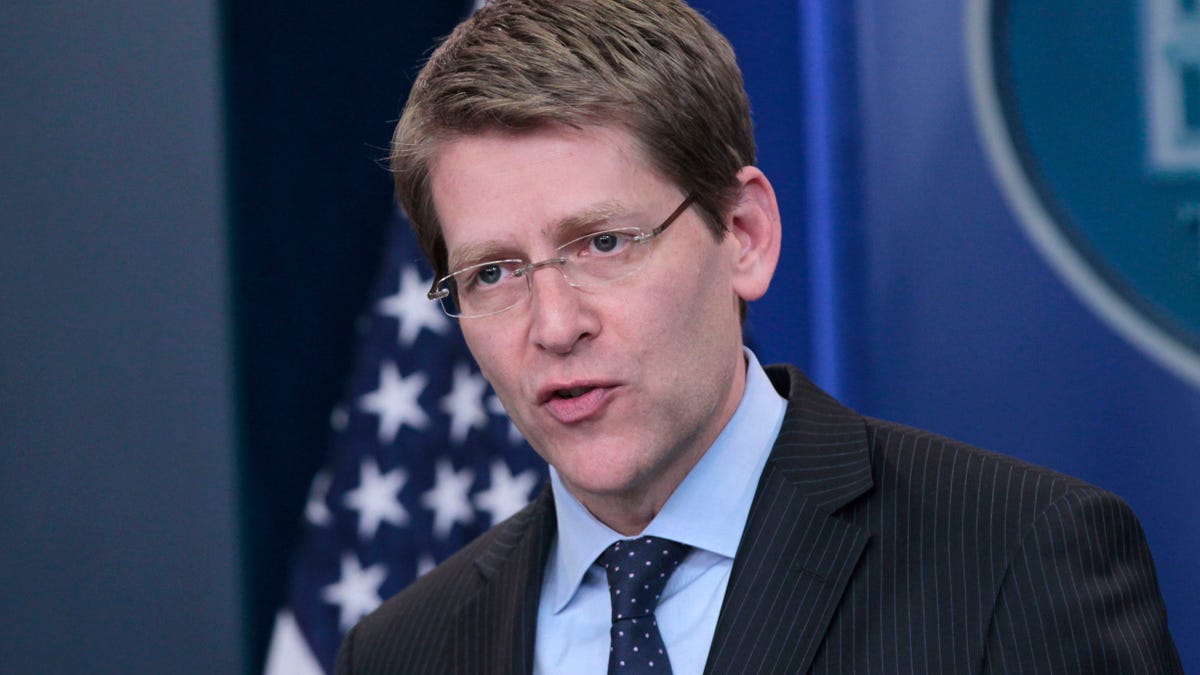
White House Press Secretary Jay Carney speaks during his daily news briefing at the White House in Washington, Tuesday, March, 15, 2011. (AP) (AP2011)
Libyan strongman Muammar al-Qaddafi has seized the moment to use his open air space to obliterate rebel forces, raising concerns that the Obama administration and U.N. Security Council are missing their opportunity to check Qaddafi's progress, in particular by establishing a no-fly zone over the country.
With the Libyan rebellion almost wiped out, U.S. defense hawks and Qaddafi critics fear that America’s leadership has faltered in the most critical moment of the Arab liberation movement.
"Mr. President: Our window of opportunity to support the Libyan people is closing quickly. And this country has a choice to make," Sen. John McCain said Monday on the Senate floor as he introduced a resolution calling for the no-fly zone. "Are we going to take action to support the people of Libya in their fight for freedom? Or are we going to stand by, doing more than nothing but less than enough, to achieve our stated goal of Qaddafi leaving power?"
Democratic Sen. John Kerry of Massachusetts and independent Sen. Joe Lieberman have also called for the United States to impose a no-fly zone over Libyan airspace.
The U.N. Security Council has drafted a resolution on a no-fly zone over Libya that would authorize "all necessary measures to enforce" a ban on all flights, to protect civilians. Members didn't take action on the draft Tuesday but were expected to reconvene Wednesday. Some members of the 15-nation body aren't optimistic that a no-fly zone will work.
The Arab League announced Saturday its support of a no-fly zone, giving the U.S. and other Western powers crucial regional backing they say they need before imposing one. Many were wary that Western powers would be seen as intervening in the affairs of an Arab country if they began a no-fly zone without Arab approval.
But on Tuesday, Sen. Richard Lugar sought to raise the stakes by calling on the Arab League to pay for the no-fly zone.
"Given the costs of a no-fly zone, the risks that our involvement would escalate, the uncertain reception in the Arab street of any American intervention in an Arab country, the potential for civilian deaths, the unpredictability of the endgame, the strains on our military and other factors, it is doubtful that U.S. interests would be served by imposing a no-fly zone over Libya," he said in a written statement.
"If the Obama administration is contemplating this step, however, it should begin by seeking a declaration of war against Libya that would allow for a full congressional debate on the issue," he added. "In addition, it should ask Arab League governments and other governments advocating for a no-fly zone to pledge resources necessary to pay for such an operation."
White House spokesman Jay Carney said Tuesday that the U.S. is reviewing a variety of options, including a no-fly zone, and that any action like that should be done in coordination with international partners.
The U.S. is looking to the U.N. as a forum for evaluating that option, he said. Carney objected to the notion that Obama was following or sitting on the fence instead of leading.
"You tell me, would you want your president not to consider all the implications and ramifications," he said.
Carney also defended the administration's deliberate pace, even if that meant the conflict would end before a decision is reached.
"We are aware of the situation in Libya and the events and fighting happening there," he said, adding that he does not believe Americans want the president "to act in a unilateral way without taking careful consideration of the consequences."
Asked at his news conference Friday if he would use any means necessary to force Qadaffi's removal, Obama recited the steps already taken, including what he called "the largest financial seizure of assets in our history."
As for military action, he said: "Any time I send United States forces into a potentially hostile situation, there are risks involved and there are consequences. And it is my job as president to make sure that we have considered all those risks.
"It's also important from a political perspective to, as much as possible, maintain the strong international coalition that we have right now."




